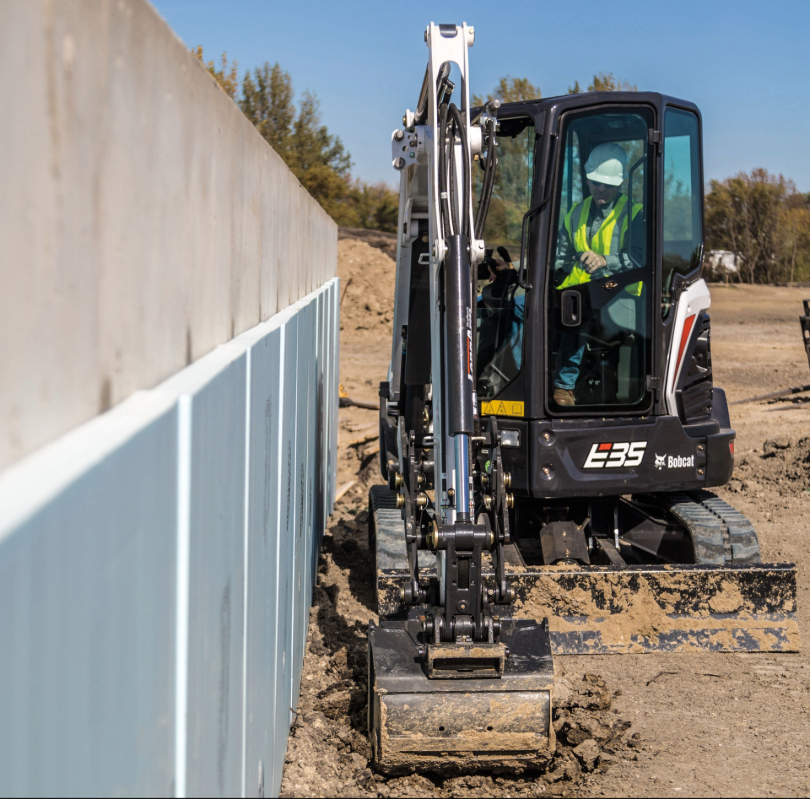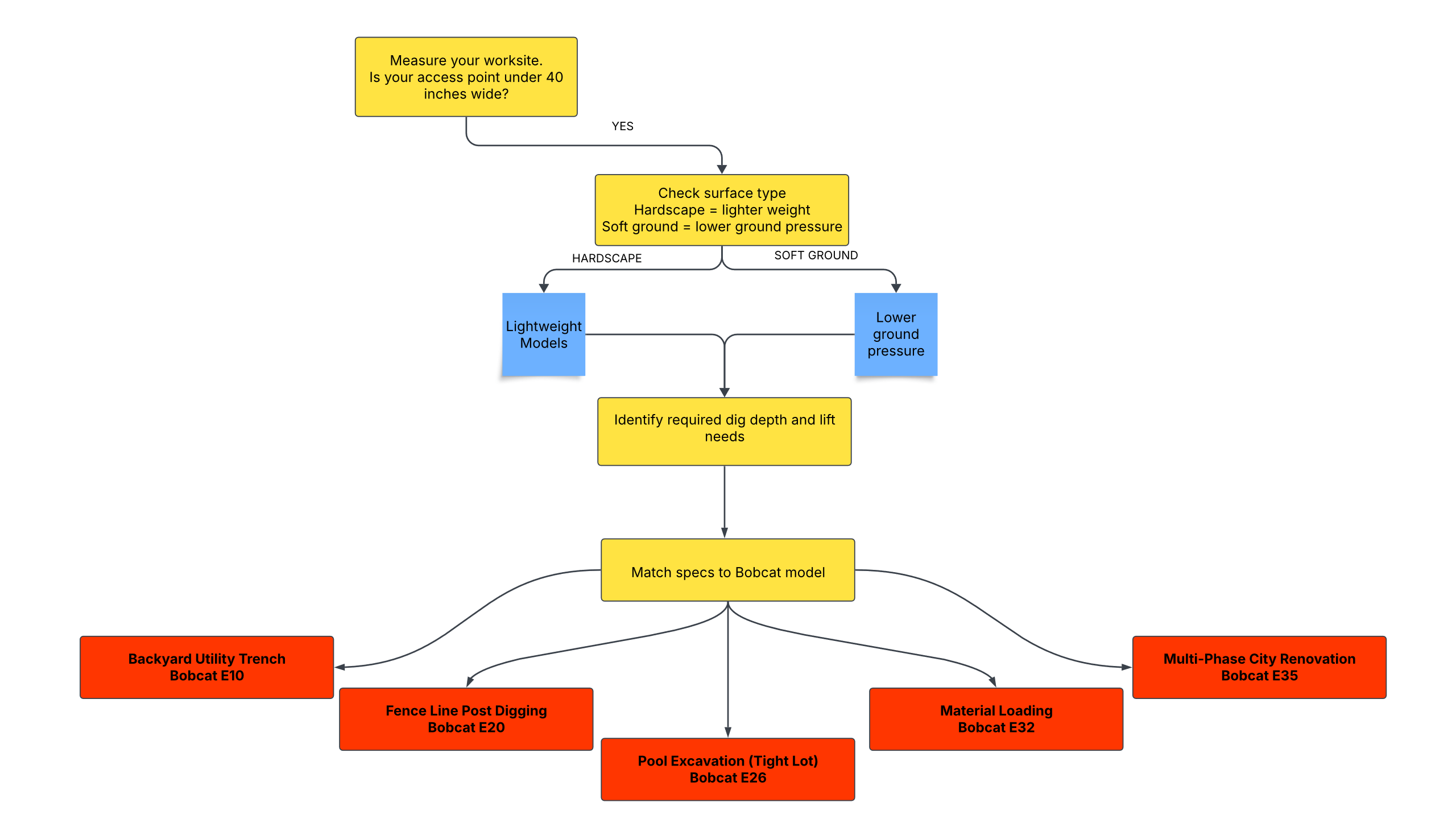Mini Excavator Size Guide for Tight City Work in Austin & San Antonio

Navigating alleyways, easements, and crowded job sites in Austin, San Antonio and Waco requires more than just compact equipment. It demands precise matching of machine specs—weight, tail swing, width, and lift capacity—to the exact environment. In this guide, we’ll help you choose the right mini excavator for tight urban spaces, backed by local support from BobcatCCE.
Why Mini Excavators Dominate Urban Jobsites
Compact excavators are the backbone of urban construction for one reason: space. Their ability to operate within inches of walls or fences while maintaining digging power makes them ideal for dense cities like Austin and San Antonio.
According to 2025 industry data from Equipment World, compact machines now make up over 52% of all new urban jobsite deployments. Zero-tail swing models in particular have surged in popularity due to their ability to work flush against structures without risk of collision.
A study published by the Associated Equipment Distributors (2024) found that urban contractors save an average of 13% on labor hours when using appropriately sized mini excavators versus full-size equipment in city environments.
Match Specs to the Realities of City Work
Weight and Ground Pressure
Weight matters. The lighter the machine, the easier it is to transport, maneuver, and avoid surface damage—critical when working on older sidewalks or landscaped areas. For example, the Bobcat E10 weighs just under 2,600 lb, reducing risk of surface cracking.
Ground pressure also plays a role. A heavier machine with wider tracks may distribute weight better on soft ground, but in urban hardscapes, a lighter machine often causes less wear.
According to Bobcat’s 2024 compact equipment usage report, machines under 5,000 lb are preferred for inner-city work due to easier transportation, less surface damage, and fewer permitting challenges.
Tail Swing & Machine Width
If you’re working near fences, alleyways, or tight driveways, choose a zero-tail swing machine. It lets you rotate the upper structure without overhang, reducing the chance of striking nearby walls or obstacles.
· Example: The Bobcat E26 features a minimal tail overhang while offering nearly 8.5 feet of dig depth, ideal for backyard pools or sewer work.
· Width: A typical city gate or alley measures 36–40 inches. The E10 has a retractable undercarriage that narrows to 28 inches.
Lift Height and Reach
Many tight city jobs involve lifting over barriers—think raised planters or concrete walls. Make sure to check: - Maximum lift height - Reach at full extension - Stability with heavy loads
For instance, the Bobcat E32 offers a lift capacity over 3,300 lb and a reach of over 16 feet.
San Antonio & Corpus Christi
· Curb work in downtown lots: Fast-in, fast-out jobs requiring precision.
· Foundation prep in older neighborhoods: Tight driveways, small lot footprints.
· Irrigation work in municipal parks: Reduced ground disturbance and low noise operation.
– Check out how MasterScapes, a full-service landscaping in Abilene, has partnered with BobcatCCE for the past 20+ years.
How to Choose the Right Model

Financing & Local Support
Whether you’re looking to rent short-term or invest long-term, BobcatCCE offers flexible financing and extensive local service coverage across Texas.
As of October 2025, special promotions include: - 0% for 36 months on select mini excavators - Cash rebates up to $4,500 - Local delivery available within 24 hours in most city zones
Find your closest branch in Austin, San Antonio, Waco, and beyond HERE.
Key Features to Look For (Checklist)
When choosing a mini excavator for city jobs, use this checklist to ensure it meets your operational and site-specific needs:
☐ Tail swing type – Zero or minimal tail swing to work close to structures without risk of collision.
☐ Machine width – Under 40 inches for access through gates, alleys, and tight spaces.
☐ Dig depth – 6 to 10 feet to handle most urban utility, landscaping, or foundation tasks.
☐ Hydraulic thumb compatibility – For handling debris, rocks, or brush in constrained areas.
☐ Dozer blade – Useful for backfilling, grading, and stabilizing the machine during digs.
☐ Lift capacity – Sufficient for material handling or dumping into small trucks or trailers.
☐ Serviceability and uptime – Easy-to-access maintenance points and local support for rapid repairs.

